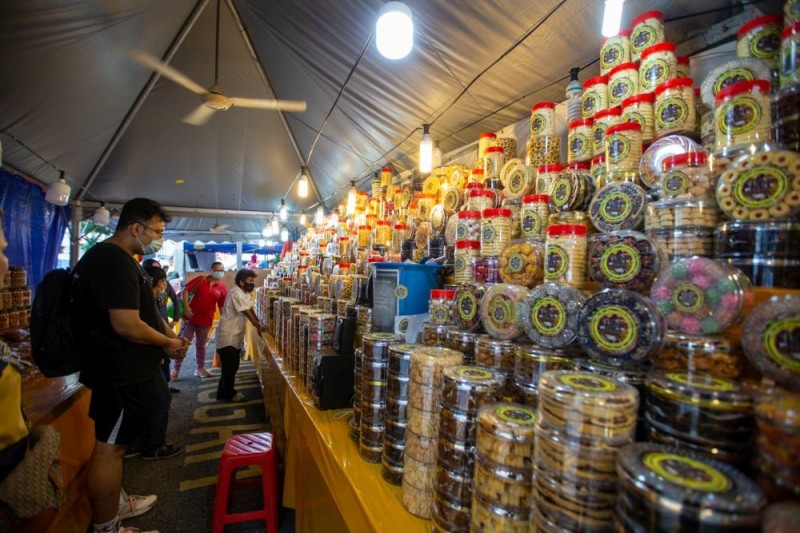
KUALA LUMPUR, April 26 — As most employers prepare for the implementation of the new minimum wage of RM1,500 come May 1, uncertainty remains on whether small and medium enterprises (SMEs) will be able to shoulder the increased cost.
The new standard comes just as economic activity begins to return to normal after a severe downturn due to the Covid-19 pandemic.
Data from Malaysia’s Statistics Department (DoSM) showed that SMEs have been able to grow every year from 2013 to 2019 — despite the first full implementation of a minimum wage in January 2013 and the increase of these minimum wages in 2016 and 2019.
DoSM showed that using gross domestic product (GDP), SMEs recorded annual growth rates of above 5 per cent for every year from 2013 to 2019.
The growth rates were: 6.4 per cent (2013), 13.5 per cent (2014), 6.2 per cent (2015), 5.2 per cent (2016), 7.2 per cent (2017), 6.2 per cent (2018), and 5.8 per cent (2019).
In 2020, when Malaysia began experiencing the Covid-19 pandemic, SMEs’ GDP registered a negative 7.3 per cent — the lowest growth rate registered in DoSMs’ records for this metric, dating back to 2003.
“It’s just bad timing,” economist Yeah Kim Leng told Malay Mail when asked if SMEs would once again repeat the track record of growing every year that the minimum wage was introduced or increased.
“The two-year long pandemic resulted in a highly uneven recovery last year, where the growth of the SMEs fell much more than their average GDP growth of 5.6 per cent.
“Ideally, there would be a more compromising approach, where the increase in minimum wage is spread over a two- to three-year period,” said Yeah, who is the director of the Economic Studies Programme at the Jeffrey Cheah Institute on Southeast Asia at Sunway University.
In terms of ringgit, SMEs GDP or “value added” was shown growing steadily from RM261.0 billion to RM552.3 billion in 2019, before dropping to RM512.8 billion the following year.
The government announced on April 18 that it will be allowing some leeway by deferring the implementation of the minimum wage rate to several employment sectors including the informal sector and companies with less than five employees when it comes into force.
Yet, this concession would not help SMEs on the “fringes”, said Yeah. Such businesses include those with slightly more employees than the minimum five, or those that have depleted their reserves throughout the Covid-19 pandemic.
He said the government should tackle the problem at the roots, and find ways to drive investment to ailing businesses, which would in turn help these companies increase their employees' pay.
Malaysian Trades Union Congress deputy president Mohd Effendy Abdul Ghani said that there was no longer any reason to delay the hike in minimum wage for all employees.
He said employer groups have given “various reasons” of why they can’t afford to pay higher wages — despite data showing that they can grow even when giving more to employees.
“Is it true that the businesses from SMEs as well as the statements from the Employer association have valid data to prove the adverse impact on the business if the minimum wage is implemented?
“If compared to the statistics released by Bank Negara Malaysia and also the DoSM, the minimum wage of RM1,500 is still low compared to the reality of life and the cost of living that plagues the lives of the people, especially B40 and even the M40 workers at this time,” he told Malay Mail.
B40 and M40 refer to the bottom 40 percentile and middle 40 percentile of the population, usually referring to the low-income households and the middle class.
Mohd Effendy added that the government can and has implemented various forms of aid before, such as wage subsidies and tax rebates to help ailing companies.
Adrian Pereira, director of the North-South Initiative — a human rights group that represents minorities, small farmers and migrant workers among others — said he sympathises with SMEs who “really can't afford” the increased minimum wage.
“But I think it is a hard reality that these businesses will have to close shop.
“If not, Malaysia will be stuck with this current employment environment, which encourages exploitative practices. Such as employers preferring to hire foreigners, who they can abuse easily,” he told Malay Mail.
The current national minimum wage, set in January 2019, is RM1,100; although in December the same year, the government set RM1,200 as the minimum wage for 57 towns and cities, which included Kuala Lumpur, Petaling Jaya, Alor Star and Johor Baru.
Previously in 2016, the requirement was set to RM1,000 in peninsular Malaysia and RM920 in Sabah and Sarawak — an increase from the RM900 and RM800 respectively, that was put into place in 2013.
Source: https://www.malaymail.com/news/malaysia/2022/04/26/the-floor-wage-debate-onus-on-govt-to-support-struggling-smes-rights-groups/2055624

